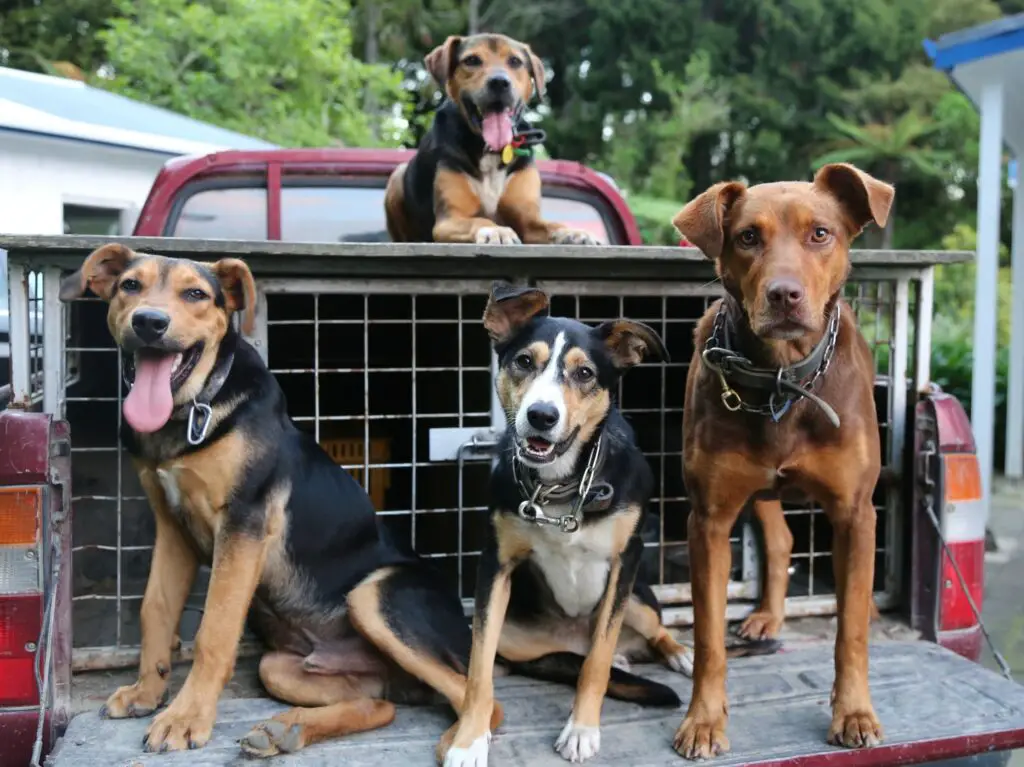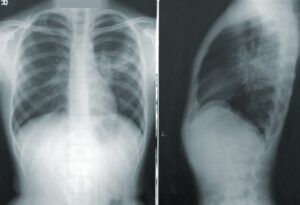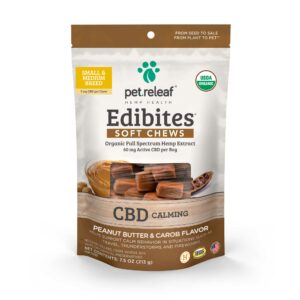
Key points
- Generally, coughs can be described as either wet or dry. There might be different triggers for different cough types;
- A foreign object stuck in a pet’s throat is one of the most typical causes of coughing in dogs. While in some cases, your dog will be able to clear its throat just by coughing and gagging, in other scenarios, surgical intervention may be needed;
- Other common reasons cough in dogs include pulmonary issues, tracheal collapse, kennel cough infection, and the flu;
- Even though canine cough is often dismissed as something unimportant by pet owners, if your pooch keeps coughing and gagging over a long period of time, you should see a vet;
As a caring pet owner, you probably get worried again and again when you hear that horrible coughing sound coming from your dog at night. In most cases, it is just a regular part of your pet’s everyday life, as it might often cough simply to clear its throat when something is obstructing its airway. However, if your dog doesn’t stop coughing or cough is accompanied by blood, it might signal that the pup is sick.
Table of Contents
Different Types of Canine Coughs
Although coughing does not necessarily indicate that your pet is ill, you should be able to distinguish between different types of cough. This will help the veterinarian determine if it is an emergency or not and whether your dog’s cough indicates a contagious illness.
Vets and doctors usually distinguish two types of coughs: dry and wet.
If you’ve ever experienced a dry cough before, you know how excruciating it can be. Not only does it sound harsh, but it is also painful for your furry friend. Moreover, a dry cough can be the trigger for further infection or inflammation of the airways.

With a wet cough, your pet will usually cough up phlegm. You can recognize this type of cough by the gurgling sounds coming from the pet. If your dog has a wet cough, it could be caused by lung problems. Wet cough in dogs is often accompanied by vomiting of fluid or mucus. Choking can also occur in both cases.
Your pet might also gag, which usually happens in conjunction with a cough. You can tell that your dog is gagging by the fact that its mouth is open wide, and the pet is making a retching sound. The pet usually doesn’t produce any liquid as a result of these actions, but it may release a small amount of mucus. When you talk to a vet, it’s essential to let them know which action comes first: coughing or gagging. Based on this information, the vet will know which types of diseases they have to consider.
Why Is My Dog Coughing And Gagging?
Here are a few things that may cause your pet to cough and gag:
A foreign object stuck in the throat
One possible cause of coughing in dogs is a foreign object lodged in the throat. It doesn’t matter how old your dog is, it will always be eager to explore new things. As a result, dogs often happen to swallow small objects such as coins or toys. This can lead to airway obstruction. Essentially, a foreign object stuck in your pet’s throat will prevent proper ventilation, and in the worst-case scenario, it can enter the esophagus, which might be lethal for your pet.

So, if there’s an object stuck in your pet’s airway, the dog will try to get it out by coughing and gagging. If the particles lodged in the throat are tiny (for example, grass seeds), this usually works without any problems. However, larger foreign bodies have to be surgically removed from the pet’s body in rare cases.
If you think that your pet may be choking on something, consult the vet right away. One indication of airway obstruction by a foreign object is that the dog is coughing up blood. The cough grows violent and is usually accompanied by the pet licking its lips. Further symptoms include fatigue, loss of appetite, weight loss, and fever.
Kennel cough
Another possible reason for sudden persistent or nagging cough in dogs is a kennel cough infection. Kennel cough is a very contagious infectious disease of the respiratory tract which is easily transmitted from dog to dog and is initially caused by viruses. Your pet may also develop a bacterial infection due to kennel cough infection since the virus weakens the four-legged friend’s immune system.

Typical symptoms of the disease include a dry cough accompanied by gagging, snorting, sneezing, and in the worst-case situation, vomiting. Dogs infected with the kennel cough infection cough for several days, making a wheezing sound in the process. They might also experience coughing ‘fits’ or spasms which get worse when your pet gets excited. If your dog is suspected of having a kennel cough, it will be necessary to take it to a vet.
If left untreated, kennel cough carries the risk of canine pneumonia and chronic cough. In addition, because kennel cough is very contagious, veterinarians recommend vaccinating dogs that have a lot of contact with other dogs.
Pulmonary issues
If your dog’s cough sounds wet or phlegmy, it can be a sign of problems in the dog’s lower airway or pulmonary system (lungs). In such cases, the pet’s breathing will usually sound labored when it is not coughing or gagging. The most common underlying causes of these symptoms are lung cancer and pneumonia.
Lung cancer
Even though cough is one of the first signs of lung tumors, the symptom appears relatively late in the disease. Usually, dogs with lung cancer begin coughing when the tumor has already metastasized or has become very large. In dogs suffering from lung tumors, the cough usually occurs at irregular intervals, or it can be chronic. Other symptoms include weight loss, decreased motivation, fever, and fluid in the lungs. Individual tumors that have not yet metastasized can be surgically removed.
Pneumonia
Another possible reason for persistent canine cough is pneumonia. Canines with weakened or undeveloped immune systems, such as puppies and senior dogs, are most often prone to pneumonia. Viruses, bacteria, canine parasites, or fungi can cause pneumonia in dogs.
In the early stages of the disease, the pet’s cough will sound quite dry, rough, and barking. But if inflammation is not treated, the initially dry cough will develop into a wet cough. This cough will often be accompanied by rattling breath noises and wet rattles. Other symptoms of pneumonia include fever, tiredness, and listlessness. Furthermore, shortness of breath and lack of oxygen are common when the dog’s lungs are inflamed.
Pneumonia can be treated quickly and effectively if the disease is recognized early enough. However, if canine pneumonia is left untreated, it can lead to severe health damage or death.
Tracheal collapse
Most often, canine tracheal collapse occurs in small toy breeds such as Yorkshire Terriers or Maltese. However, obese dogs are also very vulnerable to tracheal collapse. This chronic and progressive disease may be either acquired or congenital. When a dog experiences this condition, its windpipe collapses. As a result, canines diagnosed with the condition usually experience respiratory distress, gagging during eating, and exercise intolerance. Tracheal collapse can be treated conservatively with medication, but the condition can’t be cured entirely without surgery, which may or may not be necessary.
Dog flu
Canine influenza virus (flu) can also be the cause of moist or dry cough in dogs. If the pet is sick with the flu, the cough will be accompanied by labored breathing. Although the canine influenza virus is not life-threatening to your pet, it can make it feel extremely sick. This is why you need to recognize the signs and symptoms indicating that your pooch has the flu.

Canine flu is an infection caused by a virus. The disease is highly contagious, and your pet can easily catch it from another dog, for example, on a walk or at a dog park. Therefore, when your pet is sick with the flu, it is essential to briefly quarantine it, especially if there are multiple dogs in your household. The virus spreads via air, but it is not very hardy, does not survive at high temperatures, and can be destroyed by common disinfectants. Dogs are most easily infected by flu in cold weather, wind, rain, and the like.
Unfortunately, there is no medical treatment for dog flu. However, you should still consult your vet and find out the best ways to keep your dog comfortable while it fights the disease.
Sore throat
Just like their owners, dogs can also suffer from a sore throat every once in a while. Although the condition is generally not dangerous, it might bring your dog discomfort. If your dog has a gagging cough that sounds high-pitched, it might be a sign of upper airway irritation, bacterial infection, or even partial airway blockage.
Reverse sneezing
Reverse canine sneezing is common in smaller dogs and flat-faced breeds. While sneezing is often mistaken for choking or coughing by some pet owners, others may worry that their dog is having an asthma attack. However, reverse sneezing happens when the dog quickly and loudly pulls air in through the nose. Reverse sneezing often occurs when a dog with a soft palate experiences throat spasms triggered by, for example, exercise or an allergic reaction to pollen.
There is no need to treat this condition, however, try to keep track of it to determine the underlying reason. If reverse sneezing starts to seem chronic, call the vet.
Heart disease
Animals often suffer from so-called heart cough. This condition is more likely to occur if your dog is a bit older. This is caused by a dilated or hypertrophic cardiomyopathy or, colloquially, an enlarged heart muscle. Due to a significant increase in size, the heart presses on the trachea. This mechanical stimulus then causes the cough.
Canines suffering from heart disease often experience loss of appetite. Symptoms such as shortness of breath or heavy panting can also occur. A heart-related cough will sound rather gurgling and happen more often at night. If you see your pet suffering from this cough, you should see a veterinarian as soon as possible. Your vet can use cardiac auscultation, ECG, or ultrasound to determine if the condition is caused by heart disease.
Less common causes of cough in dogs
Some other less common causes of canine coughing include:
- Heartworms
- Fungal infections
- Distemper
- Chronic bronchitis
What to Expect at the Vet

When you visit the vet, they will diagnose your pet and prescribe appropriate treatment. If a foreign object is causing the cough, it will be removed. The vet will prescribe antibiotics, parasite-killing medications, and, if necessary, anti-inflammatory drugs to deal with different types of infections.
Conditions such as heart problems, Cushing’s disease, or kidney dysfunction must also be treated to keep the cough under control. During the examination, the vet can pinpoint the reason for your dog’s cough. The specialist may require blood and/or urine tests, MRI, X-rays, CT scan, ECG, or other types of screening methods to diagnose your pet.
If the cough has lost its original function of expelling phlegm or foreign substances and occurs purely as a reaction to irritation, cough suppressants can provide good results, giving some much-needed relief to both the dog and its owner.
FAQ
Why does my dog keep coughing and gagging like he’s choking?
This reaction might be caused by a foreign object lodged in the pet’s throat. You need to see a veterinarian immediately, as your pet may require surgery if it’s choking on a large object which is obstructing its airway.
How do I know if my dog’s cough is serious?
If your dog’s cough is getting worse over time and is accompanied by symptoms such as fever, loss of appetite, tiredness, fatigue, or weight loss, the pet likely needs medical treatment.
Why is my dog suddenly coughing and hacking?
A sudden persistent cough might signal that your pet has a kennel cough infection. This is a respiratory tract disease that is transmitted from dog to dog. If you suspect that your dog might have kennel cough, you need to visit a vet ASAP.




